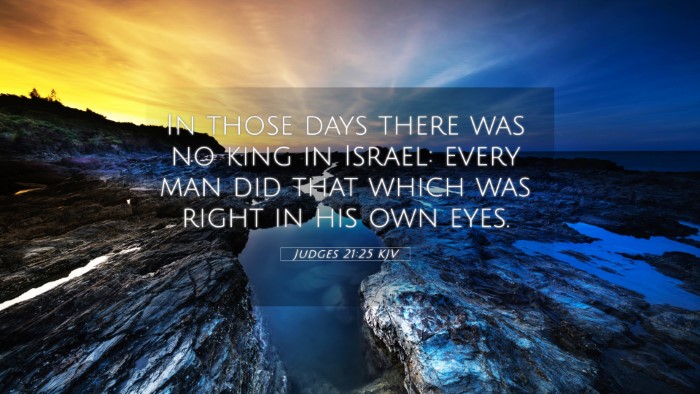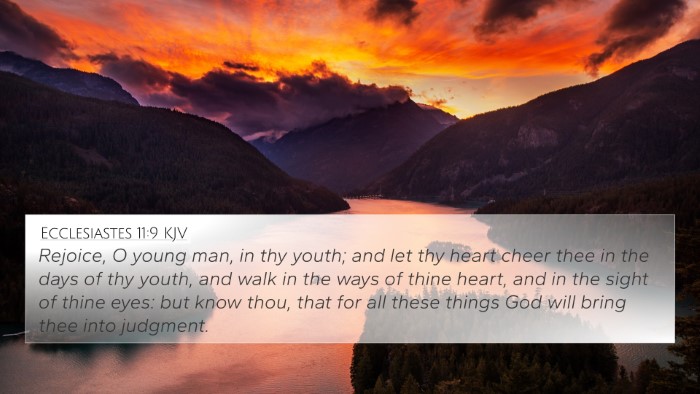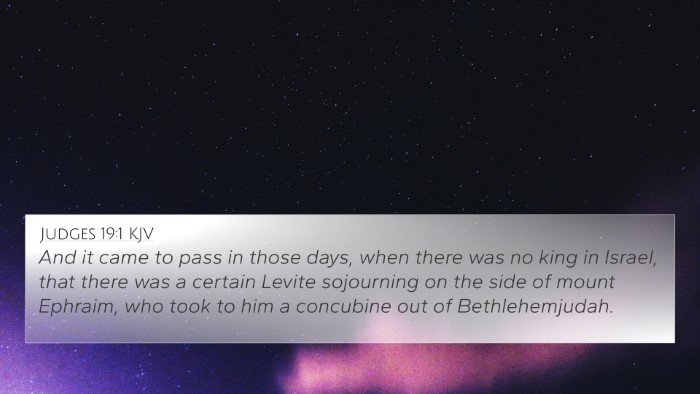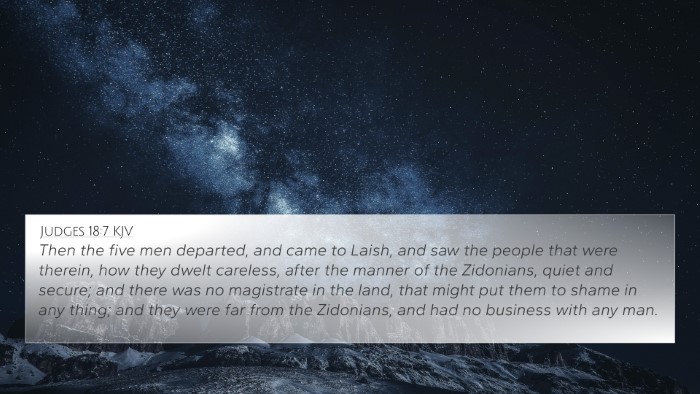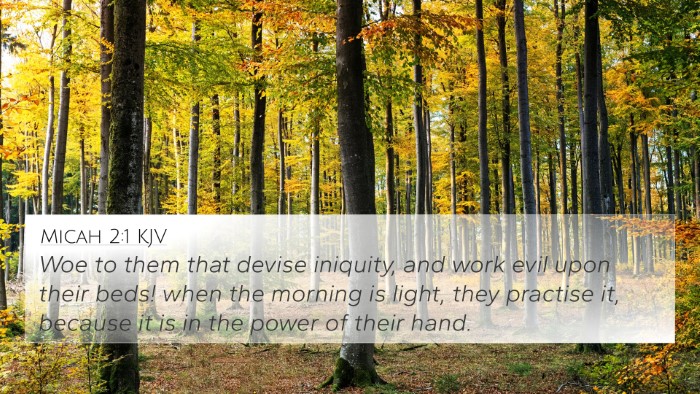Understanding Judges 21:25
Verse Analysis: Judges 21:25 states, "In those days there was no king in Israel; everyone did what was right in his own eyes." This verse serves as a pivotal conclusion to the Book of Judges and highlights a period characterized by moral confusion and chaos.
Main Themes
- Moral Relativism: The phrase "everyone did what was right in his own eyes" emphasizes the theme of individual morality over divine law. There was no unifying leader to guide the people towards righteousness.
- The Need for Leadership: The lack of a king symbolizes the necessity for authoritative guidance in maintaining order and justice within society.
- Consequences of Anarchy: The absence of leadership led to anarchy and evil, showcasing the dire consequences that arise when people choose personal judgment over divine instruction.
Commentary Insights
According to Matthew Henry, this verse encapsulates the spiritual decline of Israel during the Judges period. Henry emphasizes that a nation without a strong moral compass and godly leadership tends to stray far from God's commandments, leading to societal decay.
Albert Barnes notes that the absence of a king in Israel was both a literal and a figurative statement. He points out that it reflects a time when leaders were not appointed by God, resulting in a populace that pursued their pleasures without accountability or restraint.
Adam Clarke interprets the statement as an indictment of the Israelites' failure to follow God’s laws. Clarke argues that this moral collapse was exacerbated by the cyclical nature of sin and repentance throughout the Book of Judges, indicating that the people were more inclined to seek personal gratification than to adhere to God's statutes.
Cross-References
This verse is connected with several other biblical texts that reveal similar themes:
- Proverbs 14:12: "There is a way that seems right to a man, but its end is the way of death." This verse reiterates the dangers of relying on personal judgment.
- 1 Samuel 8:5: The call for a king reflects the people's desire for human leadership over divine guidance, paralleling their situation in Judges.
- Judges 17:6: "In those days there was no king in Israel; everyone did what was right in his own eyes." This earlier mention reiterates the core issues leading to distress.
- Romans 1:21-22: Paul describes a similar moral decline in society when people reject God’s revelation and pursue their own desires.
- Jeremiah 10:23: "O Lord, I know the way of man is not in himself; it is not in man who walks to direct his own steps." This warns against the folly of self-directed living.
- Isaiah 53:6: "All we like sheep have gone astray; we have turned everyone to his own way." This highlights the universality of the issue.
- Matthew 7:13-14: Jesus speaks about the wide gate leading to destruction—paralleling the choices of the Israelites during the Judges' time.
- 2 Peter 2:21: It would have been better for them not to have known the way of righteousness than to turn away after knowing it.
- Judges 19:1: Another reference to the lack of a king which illustrates the societal moral decline during that period.
- Galatians 6:7: "Do not be deceived: God is not mocked, for whatever one sows, that will he also reap," pointing to the consequences of one's actions.
Practical Applications
This verse invites believers to reflect on the importance of divine guidance and the dangers of moral relativism.
- Search for God's Will: Individuals are encouraged to seek God's wisdom and direction rather than rely solely on personal intuition.
- Value of Godly Leadership: The necessity of strong, faith-led leadership is paramount in communities and churches to guide towards righteousness.
- Awareness of Moral Choices: Recognize that every decision affects oneself and others; thus, a life aligned with God’s Word leads to fulfillment and societal health.
Conclusion
Judges 21:25 serves as a solemn reminder of the consequences faced when a society turns away from the Lord and embraces a self-directed life. Through the insights of prominent biblical commentators and the connections drawn to other scriptures, we gain a deeper understanding of the necessity for godly leadership and adherence to divine principles in our daily lives.

